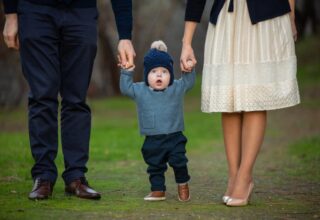What are the dangers of early walking in babies?
Early walking is a term that refers to when a baby starts walking before the normal age range, which is usually between 9 and 15 months. While it may seem like a good thing for a baby to walk early, it can actually be quite dangerous for their development. In this article, we will explore the reasons for early walking, the dangers it poses to babies, and how to prevent it.
Introduction
As parents, we are always excited to see our babies reach new milestones. From their first words to their first steps, these moments are not only thrilling but also important for their growth and development. However, some milestones can be concerning, such as early walking. Early walking can be defined as when a baby starts walking before the normal age range. This can be a sign of developmental issues that could lead to long-term problems.
Reasons for Early Walking
There are many reasons why a baby might start walking early. Some of these reasons include genetics, overstimulation, parental pressure, and physiological conditions. Some babies may have a genetic predisposition to early walking, while others may be overstimulated by their environment, leading to early walking. Additionally, parental pressure to have their baby reach certain milestones can cause them to encourage early walking, even if it is not in the baby’s best interest. Finally, certain physiological conditions, such as low muscle tone or high muscle tone, can also contribute to early walking.
Dangers of Early Walking
Early walking can be dangerous for a baby’s development. Some of the dangers include:
Increased risk of falls
When a baby starts walking early, they are more likely to fall since they are not yet developmentally ready for walking. This can lead to injuries, such as bruises, bumps, and even fractures.
Delayed motor skills development
When a baby skips the crawling stage, they miss out on important developmental milestones that are crucial for motor skills development. Crawling helps develop the muscles needed for walking, so skipping this stage can result in delayed motor skills development.
Deformed bones
Early walking can put a lot of pressure on a baby’s developing bones and joints, which can cause deformities, such as bow legs or knock knees.
Poor cognitive development
Crawling helps develop the brain by promoting the integration of the two hemispheres. When a baby skips this stage, they miss out on this important developmental step, which can lead to poor cognitive development.
Social and emotional problems
Early walking can cause social and emotional problems for
the baby as well. Babies who walk early may struggle to interact with other babies who are not yet walking, which can lead to social and emotional issues.
Signs of Early Walking
There are several signs that a baby may be walking too early. These signs include:
- Walking before 8 months
- Skipping crawling stage
- Difficulty with fine motor skills, such as grasping objects
- Irritability and fussiness
If you notice any of these signs in your baby, it is important to speak with your pediatrician to determine the best course of action.
How to Prevent Early Walking
Preventing early walking can be challenging, but it is possible. Some ways to prevent early walking include:
- Encouraging crawling: Crawling is an important developmental milestone that helps develop the muscles needed for walking. Encouraging your baby to crawl can help prevent early walking.
- Avoiding the use of baby walkers: Baby walkers can encourage early walking and are also dangerous for babies since they can lead to falls and injuries.
- Reducing overstimulation: Overstimulation can cause babies to walk early, so it is important to reduce stimulation when possible.
- Talking to a pediatrician: If you are concerned about your baby’s walking development, it is important to speak with your pediatrician. They can provide guidance on the best ways to prevent early walking and promote healthy development.
Conclusion
Early walking may seem like a good thing, but it can be dangerous for a baby’s development. From an increased risk of falls to delayed motor skills development, early walking can have long-term effects on a baby’s health and well-being. As parents, it is important to be patient and supportive of our babies’ development and to speak with a pediatrician if we have any concerns.
FAQs
- What is the normal age for babies to start walking?
- The normal age range for babies to start walking is between 9 and 15 months.
- What are the benefits of crawling?
- Crawling helps develop the muscles needed for walking and promotes the integration of the two hemispheres of the brain.
- What are the effects of using baby walkers?
- Baby walkers can encourage early walking and are also dangerous for babies since they can lead to falls and injuries.
- Can early walking be prevented?
- Yes, early walking can be prevented by encouraging crawling, avoiding the use of baby walkers, reducing overstimulation, and talking to a pediatrician.
- How can parents help their babies with motor skills development?
- Parents can help their babies with motor skills development by encouraging tummy time, playing with toys that promote grasping and reaching, and providing a safe and stimulating environment for their baby to explore.
How useful was this post?
Click on a star to rate it!
Average rating 0 / 5. Vote count: 0
No votes so far! Be the first to rate this post.




